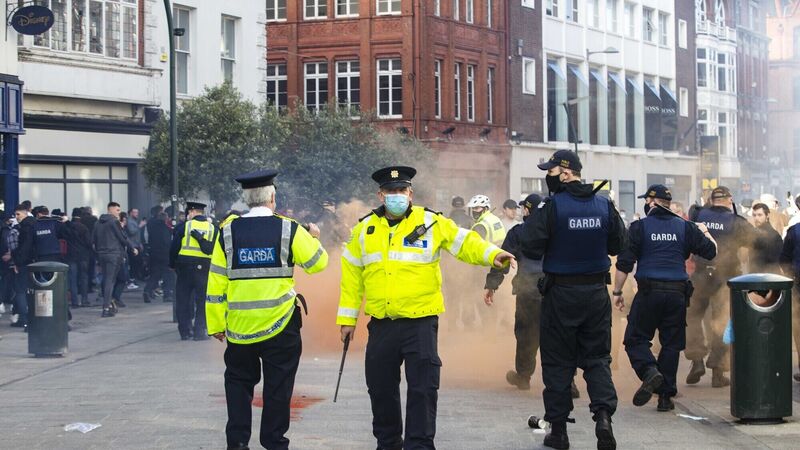Ross Frenett: Loved ones can be brought back from conspiracy theories

The anti-lockdown protest in Dublin last month. Picture: Sam Boal/Rollingnews.ie
Conspiracies are real. In Ireland, we have witnessed the pain caused when powerful institutions such as the Church conspire to cover up crimes and consolidate power.
The perpetrators of these conspiracies deserve to be exposed and punished. Unlike real conspiracies, which should concern us all, conspiracy theories are propagated without regard to evidence. This disdain for facts is the defining characteristic of every conspiracy theory, from fake moon landings to shape-shifting lizards.













